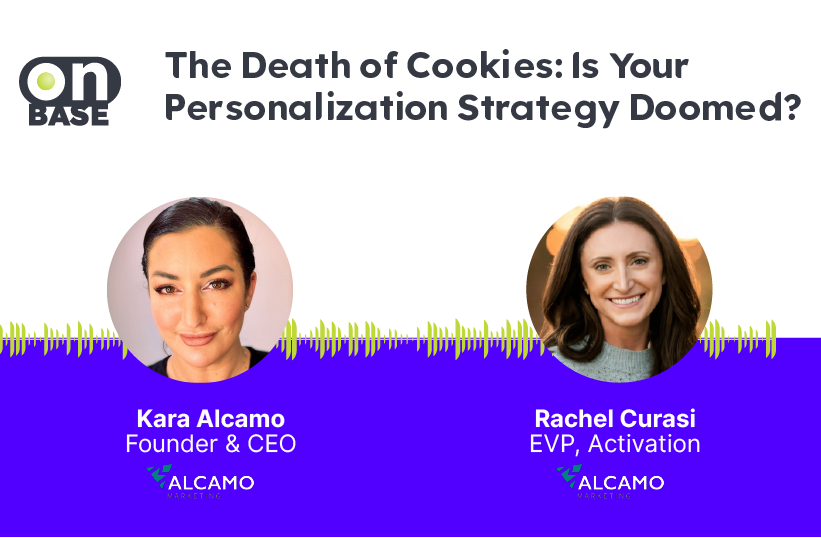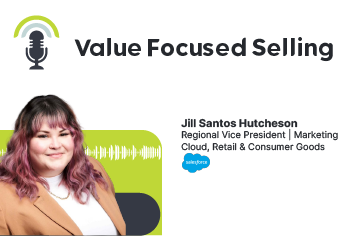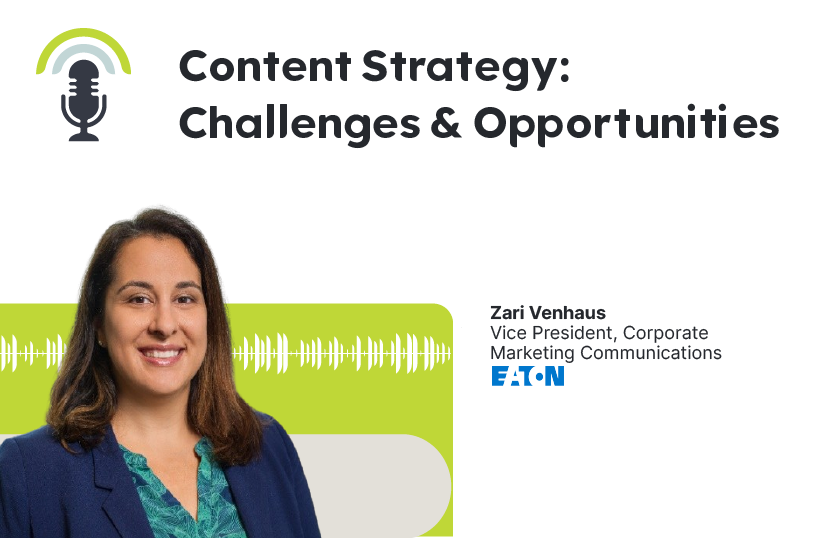
The Death of Cookies: Is Your Personalization Strategy Doomed?
Shownotes
Kara Alcamo and Rachel Cursai discuss how the deprecation of third-party cookies in 2024 will impact B2B marketing. They cite privacy concerns and regulations driving this change. Leveraging first-party data through tools like identity resolution and focusing on personalized experiences are recommended strategies. The episode provides insights on adapting to a cookieless future through enhanced customer data collection and analytics.
Best Moments
-
Reevaluating cost benchmarks and shifting to outcome-based metrics.
-
How contextual targeting and direct publisher buys will become more important strategies in a cookieless world.
-
Advanced analytics expertise will be critical for marketers to properly analyze performance without cookies
-
How Alcamo Marketing helps B2B brands navigate evolving privacy landscapes.
About the guests
Kara Alcamo
Kara is the founder of Alcamo Marketing, a B2B marketing consultancy. With over 15 years of experience in marketing strategy, media, SEO, content, and technology, she started Alcamo Marketing to provide strategic consulting services and execution capabilities. In addition to her marketing expertise, Kara has diverse interests outside of work. She is a proud beekeeper with over 4 beehives, a bunch of chickens, two cats, a dog, and a horse on her regenerative permaculture farm. Kara brings her passion for innovation to her clients, helping leading B2B brands navigate evolving privacy regulations and the cookieless future of digital marketing.
Rachel Curasi
Rachel is the EVP of Activation at Alcamo Marketing. She started her career in media buying and planning where she worked for 10 years and then shifted to B2B media technology and strategy. At Alcamo Marketing, she focuses on overseeing all of the operations, client support, and B2B technology.
Key takeaways
- Privacy concerns and regulations are driving the deprecation of third-party cookies by 2024
- Loss of cookies will impact targeting precision and measurement accuracy for marketers
- Marketers should leverage first-party data through tools like identity resolution
- Focus on personalized experiences to build loyalty and collect more customer data
- Contextual targeting and direct publisher buys are alternative targeting strategies
- Statistical analysis expertise will be needed to properly track and analyze performance
- Investing in data/analytics skills is important for the cookieless future of marketing
Quotes
“I think that even just basic statistical analysis is hugely under-leveraged right now in marketing.”
-Kara Alcamo
“People want a personalized experience, but at the same time, they don’t want it personalized to a point where it gets a little creepy.”
-Rachel Curasi
Highlights from this episode
How should marketers reevaluate their cost benchmarks and baselines given the significant changes coming without cookies?
Here are some ways marketers should reevaluate their cost benchmarks and baselines given the changes coming without third-party cookies:
- Move away from focusing solely on CPM and look more at the total costs required to reach the intended audience the necessary number of times.
- Benchmark against revenue and pipeline goals rather than arbitrary CPM targets that may no longer be relevant.
- Expect costs to increase significantly as targeting becomes more difficult and reliance shifts to platforms with valuable first-party data stores.
- Consider the full buying journey and the total addressable audience needed to meet financial goals, not just individual campaign metrics.
- Be open to higher costs if leveraging limited data sources is required to effectively reach the intended audience.
- Reassess benchmarks regularly as the ecosystem continues to evolve rather than maintaining outdated assumptions about acceptable costs.
What are the best Digital Marketers doing to adapt their targeting and advertising strategies?
Some of the key things the best digital marketers are doing to adapt their targeting and advertising strategies include:
- Investing heavily in collecting and leveraging their first-party data through tools like CRM integration and identity resolution providers.
- Focusing more on contextual targeting strategies like direct publisher buys and using content to understand buyer behaviors and intentions.
- Personalizing experiences to build loyalty and willingness from customers to share their information.
- Collaborating within their industry to share learnings and best practices for the cookieless future.
- Considering alternative targeting approaches beyond job titles to understand full buying groups/decision makers.
- Enhancing measurement and analytics capabilities through statistical analysis and potential martech investments.
- Testing innovative solutions from the privacy sandbox and identity graphs to supplement first-party data strategies.
How are marketers adjusting their approach to tracking and analyzing campaign performance?
Some of the key ways marketers are adjusting their approaches to tracking and analyzing campaign performance without cookies include:
- Leveraging first-party data sources like CRM, website visits, and app usage for analysis instead of third-party data.
- Using identity resolution providers to de-anonymize touchpoints at the account level for cross-channel attribution.
- Analyzing the impact of campaigns/tactics on lead generation and pipeline through statistical techniques like control vs exposed groups.
- Adopting privacy-preserving APIs and technologies like Google’s privacy sandbox cautiously while evaluating effectiveness.
- Enhancing data collection and fields in CRM systems to better track digital and offline touchpoints.
- Investing in data science and analytical expertise to properly leverage available first-party data.
- Moving beyond last-click attribution models to inferential analysis of touchpoint impact on outcomes.
- Testing alternative analytics vendors that can attribute non-digital actions not captured by solutions like Visible.
Resource recommendations
Books
–A World Without Email
–Deep Work
Shout-outs




